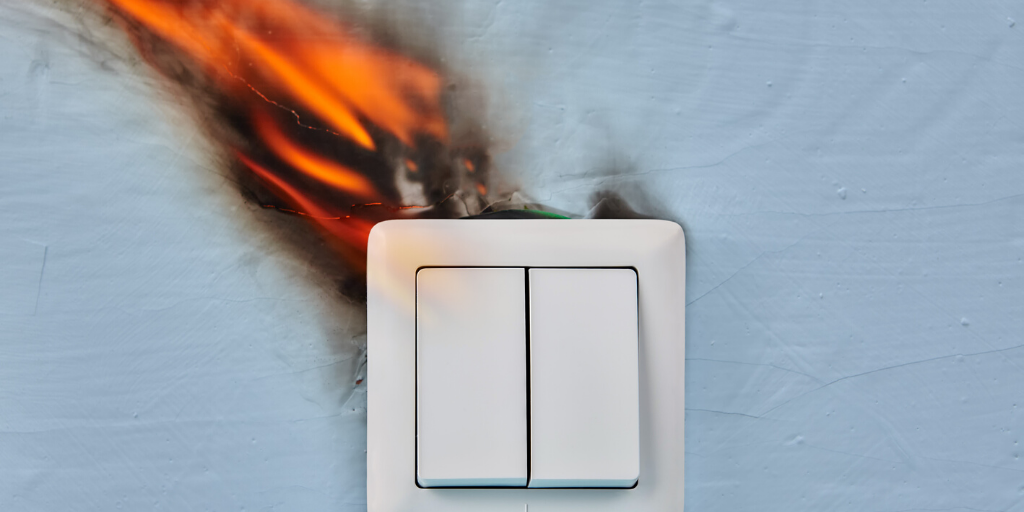
Have you put off fixing faulty wiring or that blinking light? Perhaps you have been ignoring the overloaded extension cord. It is important to recognize these dangers, as they often cause electrical fires. Electrical fires take place less frequently than other types of fire, but they are more damaging physically and financially. They cause a lot of damage, especially if you don’t know how to get the situation under control while it is still manageable.
This blog will teach you how to recognize the potential fire hazards in your home, and the best way to put out an electrical fire before it is too late.
Electrical Fire Hazards
More than 60 percent of electrical home fires are caused by wiring and other similar items. Lighting fixtures, lamps and bulbs account for another 20 percent while plugs and cords are to blame for approximately 11 percent.
This report from the National Fire Prevention Association breaks down the different types of equipment involved in electrical house fires.
Frequent causes for electrical fires are:
1. Equipment Gets Worn Out
All appliances have limited mechanical lives. Once a space heater or electric range outlives its manufacturer’s recommended years of usage, it can become a fire hazard.
2. Failed Wiring
Wiring, particularly in older houses, can be a hazard, as the wiring can lose its capacity. Its failure can generate excessive heat, expand conductors and arc into electrical fires.
3. Overloaded Lighting
Extension cords that have many plug-ins are dangerous and need to be taken care of. Lights and lamps that burn too much bulb wattage are dangerous threats as well.
What to Do If An Electrical Fire Breaks Out:
As soon as you realize that you’re facing an electrical fire (and not a grease fire), assess the safety of everyone in the house. If you are doubtful that you can handle the fire on your own, evacuate and call 911 immediately.
In some instances, you can extinguish the fire with these tips. It is advised that you call 911 first if possible.
1. The Root of the Problem
If you can find where the fire has originated, unplug the appliance or device safely but immediately. If you cannot unplug the appliance first, do not use water! This is crucial, as you may get electrocuted. If you were able to unplug the appliance, you may use water to attempt to extinguish the flames.
2. Baking Soda
Small fires can be contained with baking soda, as it is a natural fire extinguisher. Do not mix up baking soda with its similarly named kitchen ingredient, baking powder. If you do so, the flames will react the opposite way.
3. Fire Blanket
Small fires can also be put out with fire blankets, or even average heavy blankets. (As Long as the material is not flammable.) The blanket smothers the oxygen that causes the flames to thrive.
4. Check Your Fire Extinguisher
Check the classification code on your fire extinguisher. Most are marked as multi-purpose Class A-B-C which means that they’re suitable for a range of fire types. Do NOT use Class A only, as it is water based. Class C is safest for electrical fires, as it was made for such fires.
The ‘best way’ to put out an electrical fire all depends on each situation. Following the steps in this guide are crucial, especially removing the power source of the fire, If you find yourself doubting what you should do, always call the emergency services before the flames spread and get out of hand.
Have you recently dealt with an electrical fire that has left your home a mess? We have decades of experience in fire damage cleanup and can help you through the entire process, and we don’t recommend you try tackling this on your own. Call us 24/7 at (401) 849-6644 or request an estimate.

Write a comment: